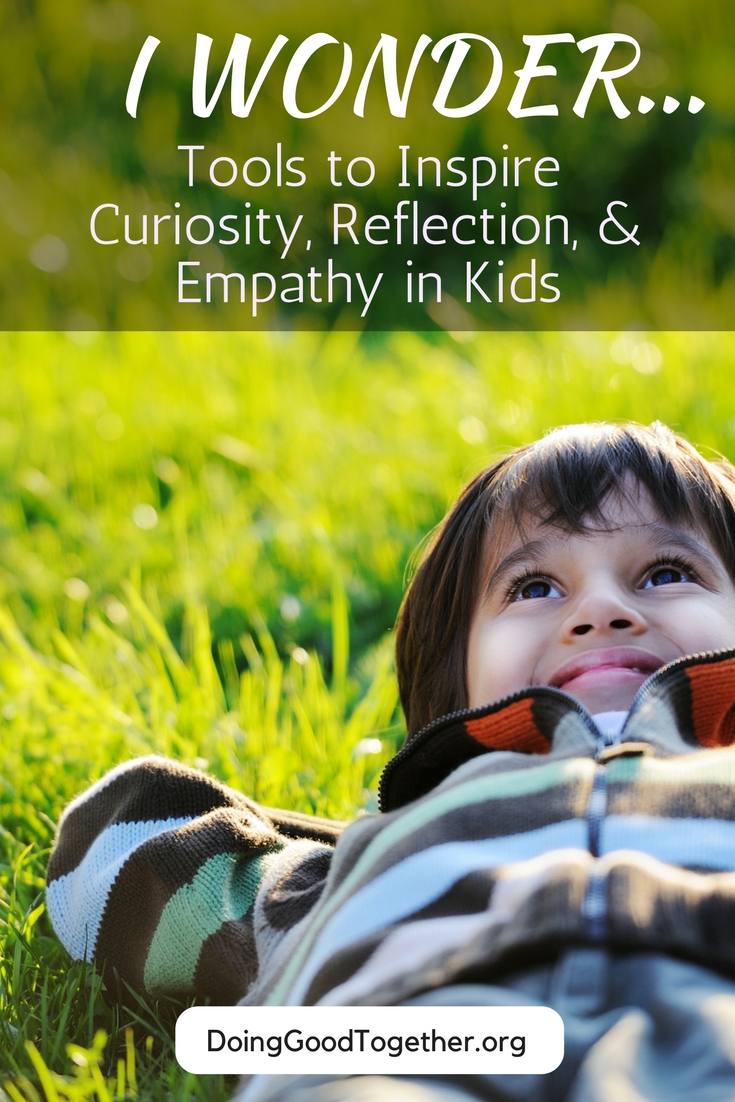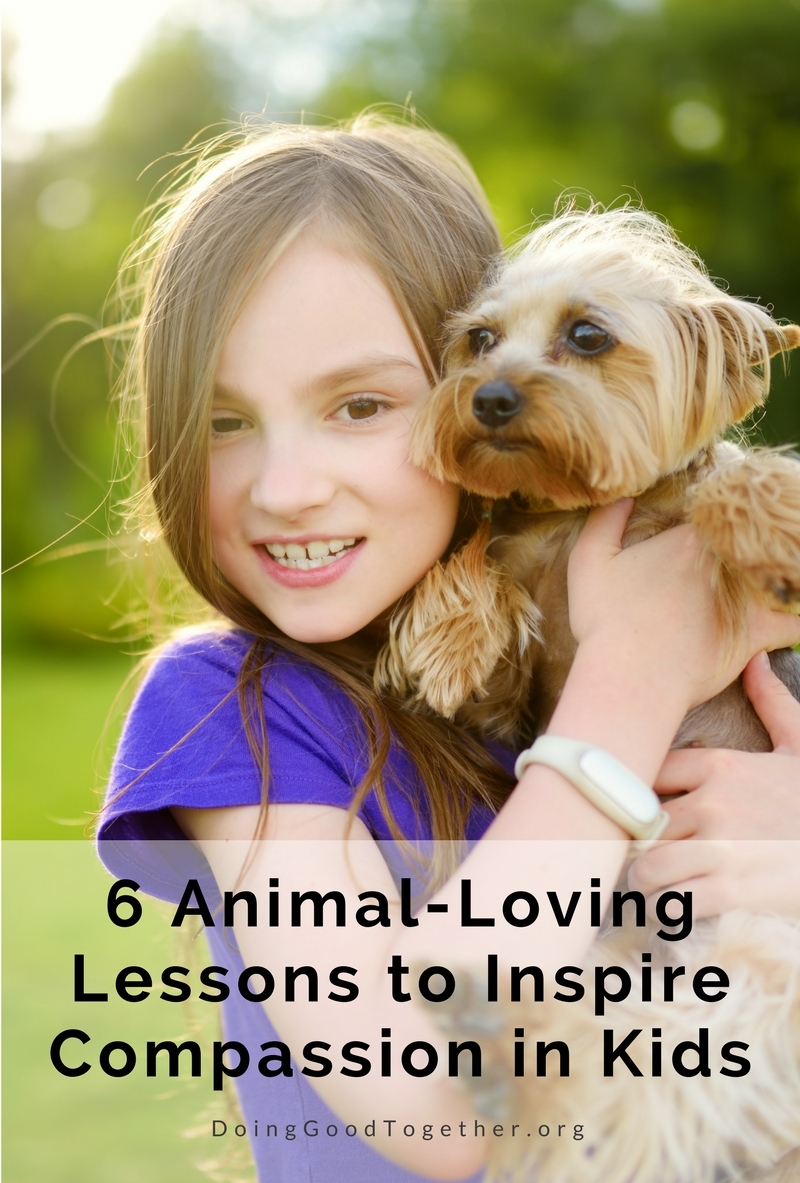Empathy in Action: An Interview With Dr. Michele Borba
Words of wisdom from the author of Unselfie
Michele Borba, Ed. D., has spent more than a decade delving into the research, surveying kids, and speaking with parents all over the world about the theory and practice of empathy in action. She's compiled her wisdom – written in her warm storytelling style – into one wonderful book that reflects and reinforces everything we believe in here at Doing Good Together™.
Borba's latest book Unselfie: Why Empathetic Kids Succeed in our All-About-Me World is essential reading for big-hearted parents everywhere. In it, you'll find Borba's nine strategies for putting empathy into action, including creative approaches to perennial favorites here at Doing Good Together: nurturing emotional awareness, standing up for others, and instilling moral courage. As the title suggests, Borba's book irrefutably demonstrates that nurturing compassion in our kids prepares them for a lifetime of success.
While you wait for your copy to arrive, allow me to share highlights from my recent conversation with Michele Borba herself.
Sarah Aadland, DGT: Since the book was released in 2016, tell me what you have heard from parents. How are they responding?
Michele Borba, Unselfie: I was recently in Cairo, Egypt when a father came up to me with a comment that really resonates with just about everyone. He told me, "Thank you! I always thought I was just a member of a food chain. I didn't realize I could make such a difference on how my kids turn out." And I'm hearing this from parents all over!
They don't realize that empathy can be cultivated. Most of them think it's locked in a child's DNA or temperament or gender. They respond almost overwhelmingly with "Wow, I didn't know that empathy can be taught."
Tell me what you're learning about gender and empathy. I look at my son and see his capacity for kindness is just as strong as my daughters', but there is this sense in society that girls are just wired to be nicer. Is the research bearing this out?
As parents, we have a little guilt here. It turns out, we talk far more with our two-year-old daughters about emotions than we do with our two-year-old sons. We give our girls a big, huge empathy advantage by talking with them more about feelings. Emotional literacy is the first habit of the nine habits I talk about in Unselfie.
But if you read the last chapter of the book, you'll find incredible stories about how empathetic boys are, how brave they are to step in and speak out for others. And when I asked these kids, boys and girls, how they got this way, they all said it started when they were younger and their mom or their dad took them out in the community for a service project.
They looked in someone's eyes and realized: I can make a difference.
As families work to build empathy and use those caring feelings to make a difference, what advice do you have to help kids (and grown ups) avoid burn out?
It's true, you can get so overwhelmed by feeling with others you might shrug and say "I don't know what to do. I'm getting too distressed, I'm not going to get involved." You risk walking away.
For one thing, watch your child, and figure out when it is too much. Every kid has their own threshold. Practice mindfulness and deep breathing. And stop thinking about the suffering. Teach your kids to think about the good things in the world. Start simple, by thinking about your grandma and the good things she does, or someone close to you. Then look for good things in the wider world. Keep you compassion open.
It's important to teach your kids skills to help them cope. Instead of dialing your helping efforts completely down, learn techniques, like some I share in the book, to keep your compassion open.
Also, it's a very doom and gloom world right now. If we all just read the headlines every morning, we wouldn't get out of bed! Cut out the good news reports, usually hidden in the back of the newspaper, and share these stories with your kids. They usually feature real kids making a real difference. Focusing on the good news inspires their empathy, and kids will see that other kids have problems but don't stop. They instead do extraordinary things to make a difference.
What impact do you hope Unselfie and this parenting movement, based on building empathy, will have on our culture?
We've been failing to raise social capital, to raise the kind of kids that really do want to make a difference in the world. I'm not talking about winning a Nobel Peace Prize. I'm just talking about raising kids who see someone in pain and step in to help.
The biggest thing we can do to make the word a better place, is through our children. They already have the hearts, they want to make a difference, we just need to help them know how.
You have to have the ability to feel with them. You have to have the mindset or moral identity that says, I am a caring person. You have to have the skills, and you have to practice. Do all of that and you'll raise a kid who wants to make the world a better place.
But you'll also be raising a more joyous child. A child who wants to not get, but give. A child who has healthier relationships with others. A child who is mentally healthier. And you'll be fueling your child's passion, especially when you let your child lead you.
Any tips for families just getting started?
You don't have to do all 300 projects I discuss in the book. Just pick one or two, and do them often. It helps define who you are, it gives kids a moral rudder. It's the repetition that we don't do nearly enough. And it's that repetition that makes all the difference.
It's important to recognize that empathy is a womb-to-tomb phenomenon. We can start teaching them, and ourselves, at anytime.
Click here for this popular Doing Good Together Newsletter.
Michele Borba, like her book Unselfie, is charming and full of wisdom. Make time to read all nine of her practical, empathy-building strategies. Then head back to Doing Good Together™ for creative projects and printables that teach kindness.
Still looking?
Put empathy in action this summer with our favorite resources for your Summer of Kindness below.













